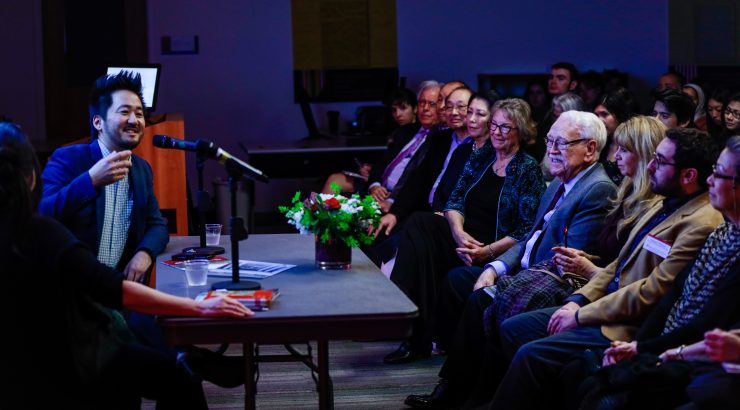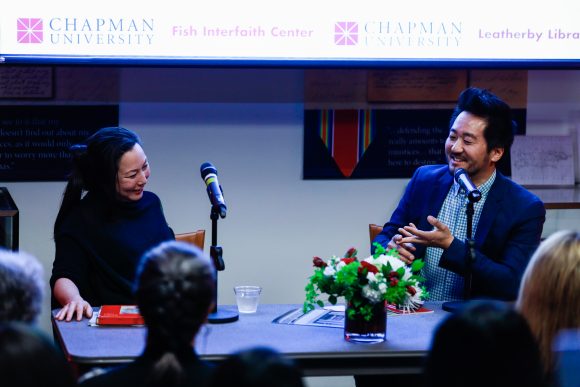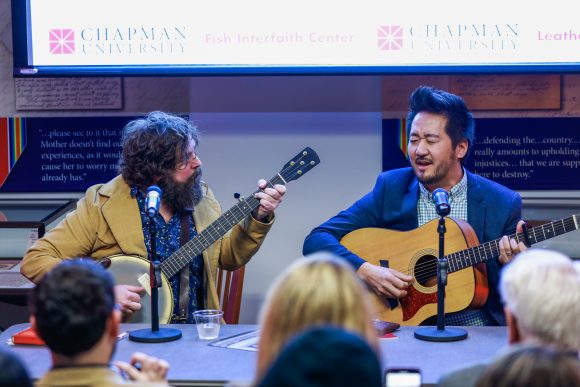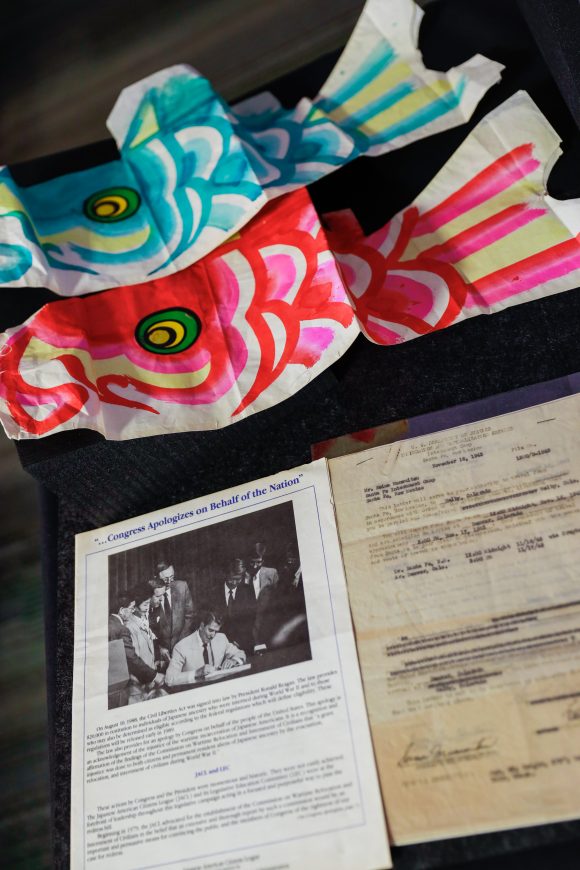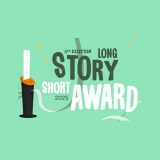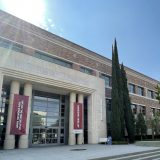Kishi Bashi and Dr. Stephanie Takaragawa Musician and Chapman sociology professor discuss Japanese-American incarceration and music
March 13, 2019
On Wednesday, February 27th, the Center for American War Letters Archives on the lower level of the Leatherby Libraries transformed from a well-lit study and event space into a cozy, jazzy salon. Between portions of his conversation with Chapman sociology professor Dr. Stephanie Takaragawa, musician Kishi Bashi played songs from his latest album and film, “Omoiyari,” in an artfully-lit room, while audience members enjoyed refreshments.
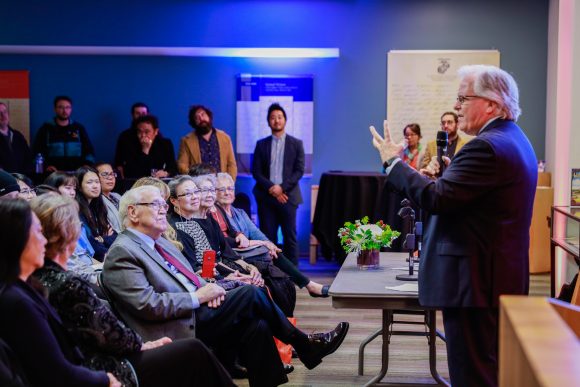
Richard T. Bryant, Executive Director of the Musco Center for the Arts, introduces Kishi Bashi and Dr. Stephanie Takaragawa.
Kishi Bashi is the stage name of Kaoru Ishibashi, the son of two professors, both Japanese immigrants. He is a songwriter, singer, and classically trained musician. His conversation with Dr. Takaragawa in the Leatherby Libraries was a part of a several-day visit he made to Chapman. He led a master class for music students in the Hall-Musco Conservatory of Music Thursday afternoon, and performed with a string quartet Thursday evening at the Musco Center for the Arts. While these other two events were more performance- and technique-oriented, the event at the Leatherby Libraries was focused on the ideas and history behind his latest project.
“Omoiyari: a Songfilm by Kishi Bashi” is, as its title suggests, a film – although a corresponding album will also be released soon – inspired by Kishi Bashi’s visits to the sites of the Japanese American incarceration of the 1940s. The film explores his identity as a Japanese American (but one whose parents immigrated after WWII), as well as the number of social issues surrounding both the incarceration of the ’40s and today’s questions of racial identity and immigration. Dr. Stephanie Takaragawa, whose research focuses in part on Japanese American representation in film, mass media, art, performance, and cultural display, and whose grandparents and father were incarcerated at Heart Mountain, spoke with Kishi Bashi about these social issues. As the conversation turned from the incarceration during WWII to the modern immigration crisis and issues of racism within the Japanese American community, the audience was struck by the relevance of a quote, attributed to Mark Twain, shared by Kishi Bashi as part of his film: “History doesn’t repeat itself, but it often rhymes…”
Interspersed throughout the conversation between Kishi Bashi and Dr. Takaragawa, the musician played pieces from the film, accompanied by his friend Mike Savino (“Tall Tall Trees”). These pieces included the poignantly-titled “Summer of ’42” and “F Delano,” and the audience loved all of them.
Displayed at the entrance to the room was a selection of items from the Leatherby Libraries’ Frank Mt. Pleasant Library of Special Collections and Archives, focused on the incarceration of the Munemitsu family, known for their involvement with the Mendez family at the heart of the Mendez v. Westminster civil rights Supreme Court case. Annie Tang, Coordinator of Special Collections and Archives, writes about this display, “Gonzalo and Felicitas Mendez would never have been in Westminster, nor would have they been able to afford the lawsuit, if they had not been leasing the farm from the Munemitsu family, who as Japanese Americans were being incarcerated during WWII in Poston, Arizona. […] The collection consists of papers, ephemera, realia, and photographs from the Munemitsu family. Included in this display are documents and photographs regarding the incarceration of Munemitsu family members in camps at Poston, Arizona and Welby, Colorado; as well as the lease agreements between the Mendez and Munemitsu families. Other material also pertains to their life beyond the war, with handmade Japanese-style kites, a period radio, and news clippings.”
This event, including both the conversation between Kishi Bashi and Dr. Takaragawa and the display of the Munemitsu family archives, was an early stage in the process, currently under consideration, of beginning an initiative for the study of Japanese Americans in WWII at Chapman. This initiative’s primary advocate is emeritus chair of Chapman University’s Board of Trustees Doy Henley, who cares passionately about the further study of the period, and hopes to see that study take place at Chapman University.
Video of the event can be accessed here.
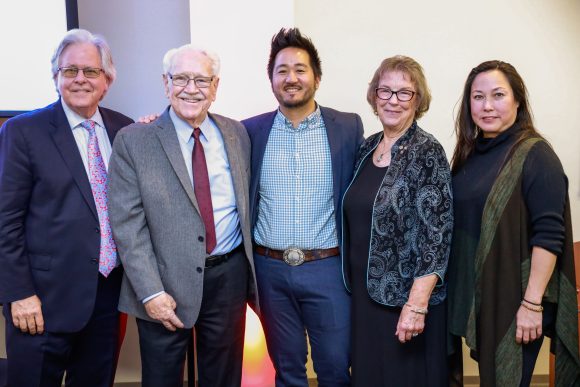
L. to r. Richard T. Bryant, Doy Henley, Kishi Bashi, Dean of the Leatherby Libraries Charlene Baldwin, Dr. Stephanie Takaragawa.
Credit for all photos: Musco Center photo by AR Photography
